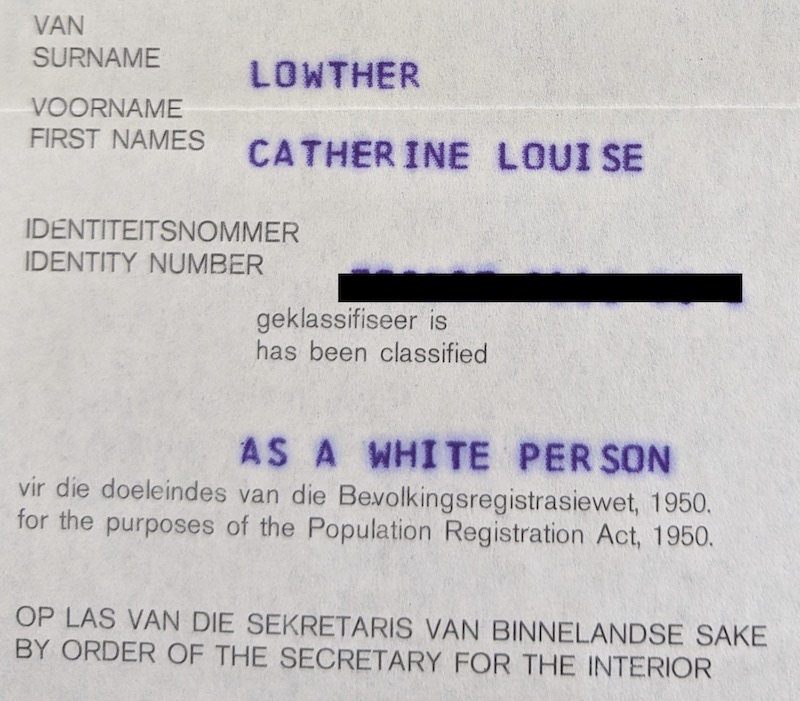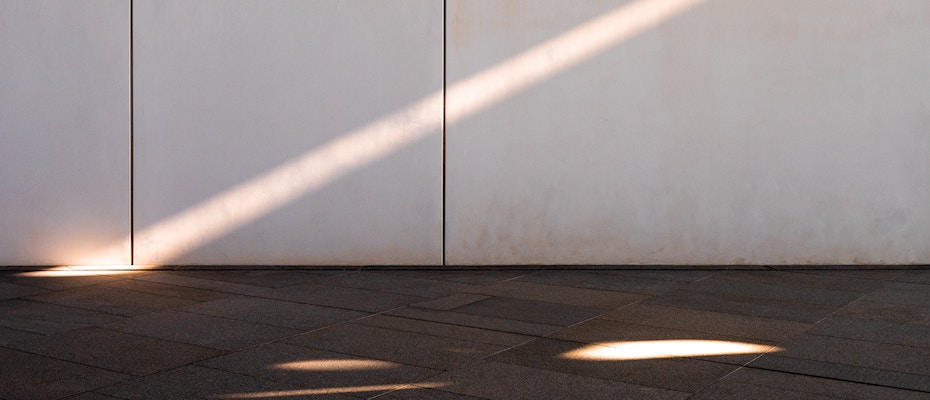There are times when, as a white woman, I have an inkling of what it might feel like to be othered. As a person with a non-British accent, I am frequently asked where I come from. This is usually by people who are genuinely interested, but the message I hear is, ‘You are not from here.’
I acknowledge this is insignificant compared with the other real microaggressions and downright abusive things that people experience – because of the colour of their skin, the way that they dress, the people that they love, their identities or the accommodations that they need. However, I bring up the frequency in which I am asked where I come from, because of the answer I always give:
‘I grew up in South Africa.’
It is that childhood that I will reflect on in this blog as a possible reason why anti-discrimination and anti-racism are so important to me.
Readers are advised to click links with caution – the actions (especially ‘necklacing’) are distressing and may be triggering for some.
A protected childhood
My British parents moved to South Africa in the 1970s as economic migrants. It is where I was born and officially classed as a ‘white person’.

As is often the case, I only have sketches of their experiences to share. My dad has spoken about the apartheid government tapping our home phone (he was an academic in a university which taught students of all races). I remember him telling my grandma (his mum) that the protests weren’t as bad as she’d seen on the BBC news, reassuring her that we were safe. I understand that my mum went out of her way as a physiotherapist to provide services for Black and other impoverished communities. I was also sent to a private school to avoid government ‘indoctrination’ (as I was told) – a school which was girls only, but multiracial.
I remember reading about ‘necklacings’ in the daily paper and not knowing what those were. I remember going with my mum to a local office to renew our cleaner’s ‘dompas’, which allowed her to work in a whites only area (I only know that was what we were doing in retrospect). I remember segregated toilets at the shopping centre. I remember a friend’s brother being killed in a bombing. I remember bag searches in public spaces.
But otherwise, I spent my childhood relatively oblivious to what was happening around me.
Rising awareness
In my teen years I became more aware. I lived in Bath the year I turned 13, a year in which I was teased for the way I pronounced words and had the Spitting Image song ‘I’ve Never Met a Nice South African’ sung at me. It was also the year in which the Free Nelson Mandela concert was held at Wembley.
When my family returned to South Africa, my Black school mates were becoming more visibly political, wearing ANC badges on their blazers. When I was 15, our school asked white families to host Black students (from the townships) over a week of unrest so that they could go to school without intimidation or fear. A year later a few of us watched Nelson Mandela’s release from prison at a friend’s house. Classmates who took History (I didn’t) watched other key events of the time on TV at school. In 1992 I was involved in a presentation our school gave to neighbouring state schools who were invited to see what being at school with non-white children was like (the day was primarily organised and led by Black students).
At this time, there was also talk of civil war. There were a few attacks orchestrated by the Afrikaner Nationalist organisation the AWB. Many white people were worried.
The edge of adulthood
The first election I participated in (because that was the year I turned 18) was the first fully free election in South Africa. The day was hot, the queues were long and there was a lot of excitement. I don’t remember there being anxiety that day. The worries seemed to dissipate with the failed (and sometimes ridiculous) attempts to undermine the move to democracy and with the reassurances from leaders from all sides.
I remember having many anti-racist conversations with mostly white young men in my late teens. I think they initiated those conversations on purpose to wind me up. I also had some quite deep conversations about feminism and racism with Black colleagues at my weekend job while at university (the same university where my dad worked).
Through those years I acknowledge that I bumbled along feeling quite self-righteous. But I also know that I didn’t participate in any protests or demonstrations. I didn’t have any close Black friends. I am keenly ashamed of the way in which we purposely mispronounced one of our Black peer’s names, thinking we were funny (and even affectionate) and totally missing how hurt she was.
Now that we are older…
I moved to England in 2000 and worked in Hounslow, London in the early noughties as a youth worker. In that environment and at that time I came to fully recognise the entrenched culture of racism I’d experienced and how incredibly damaging it was for everyone. Especially when I was experiencing what the alternatives might be. My workplace at that time felt truly inclusive and one which celebrated diversity. It felt Utopian, at least to me. And although I can’t be sure, I believe my colleagues might have corroborated my sense of inclusivity.
It doesn’t feel like that anymore. Perhaps it is the backlash against ‘woke’, or populism, or ordinary people feeling so disempowered that they need to find others to scapegoat. Perhaps it has always been there, and in my naivety (or optimism) I just didn’t see.
But I know I can now do something. The ‘Rainbow Nation’ aspired to in South Africa (and sadly not achieved) is beyond my capacity. But I can contribute something, however small, to make our profession and the AEP a safer space for people who feel othered, marginalised, discriminated against, hurt, angry – potentially every day.
A safe space
We will need a safe space to reflect on the things that EPs have done well in promoting social justice, and the more shameful ways in which we have segregated and excluded people, often limiting prospects and lives.
We will need a safe space in which to have some difficult conversations about ways in which our workplaces and training spaces haven’t been as inclusive and welcoming as they needed to be. We will need a safe space to think about what’s gone wrong so that we can plan ways in which we can move forward and build something better. The need for such a safe space was highlighted by members at the 2022 AGM – I thank them for their candour in raising this from the floor and I am here to say that I am standing by my promise.
The AEP’s Safe Space day will be held in London on 18th July and you can register to attend.
The aim of the day is to create a safe space for members to speak about their lived experiences of discrimination and to forge an anti-discrimination movement within the AEP.
I love my profession but I know that we can do so much better. Change is not something that can be implemented by one person and I know that I am not alone in my determination to make educational psychology diverse, inclusive and equal. You can be part of that journey too.
‘It is in your hands, to make a better world for all who live in it.’ – Nelson Mandela

